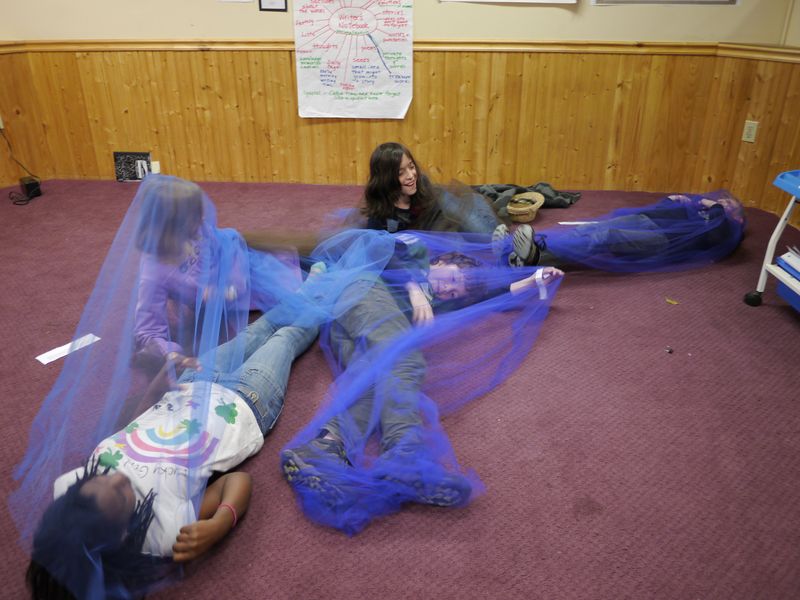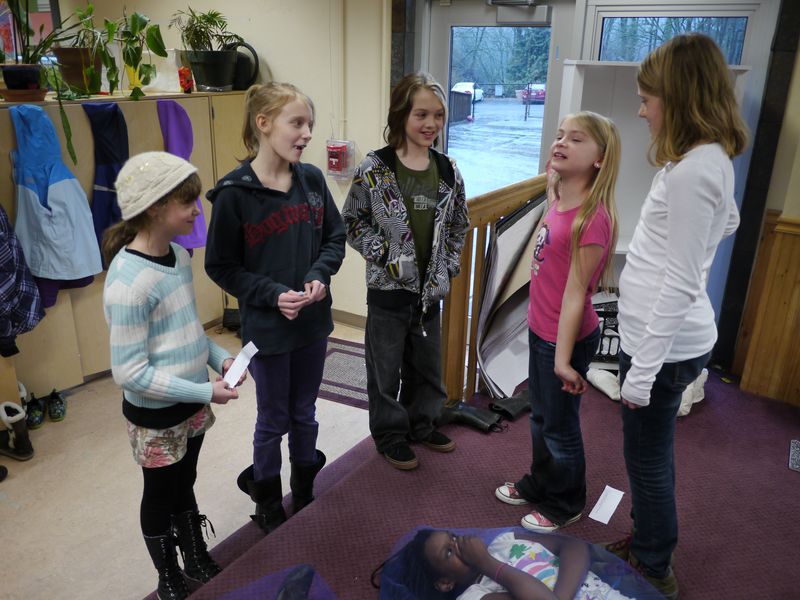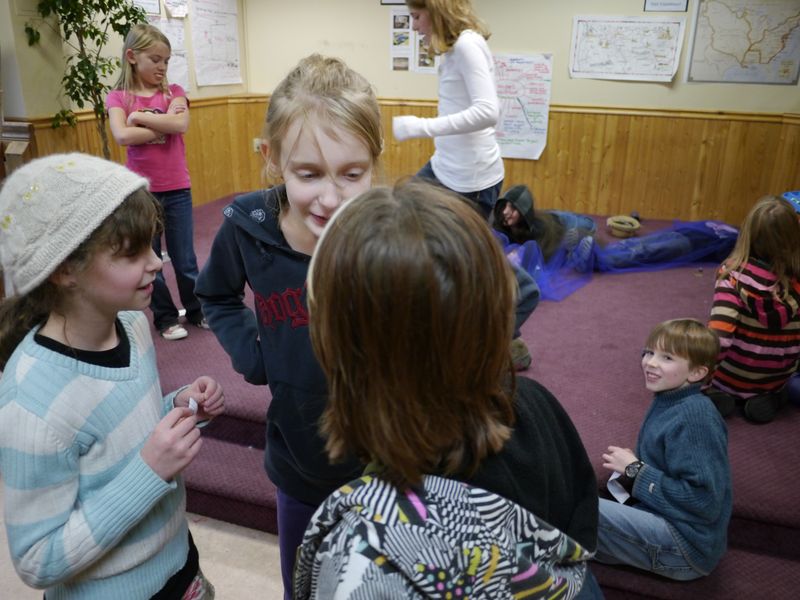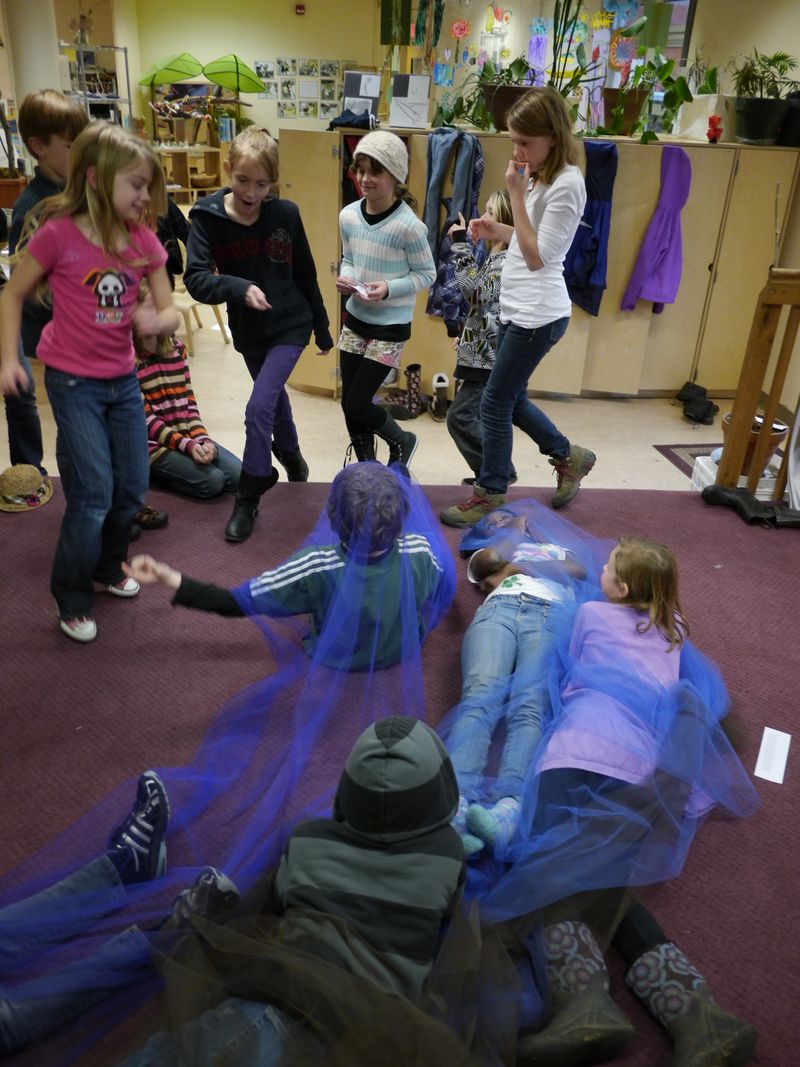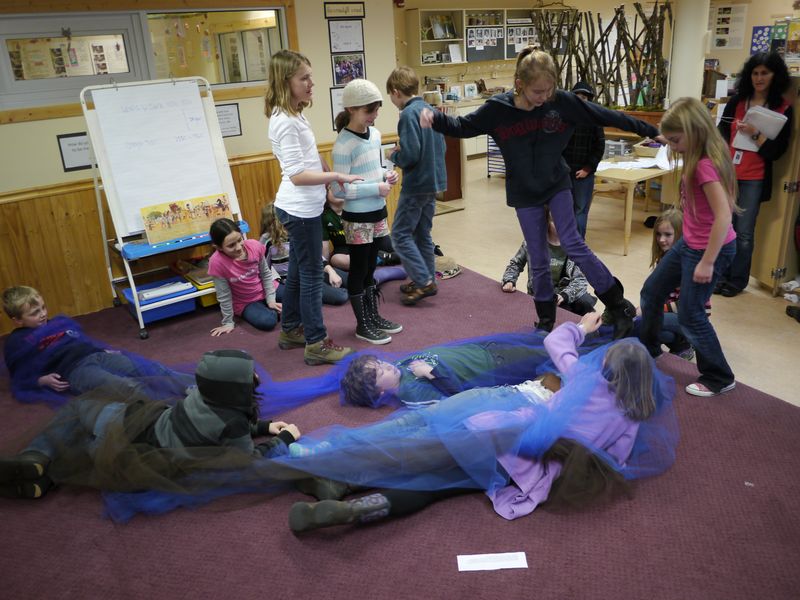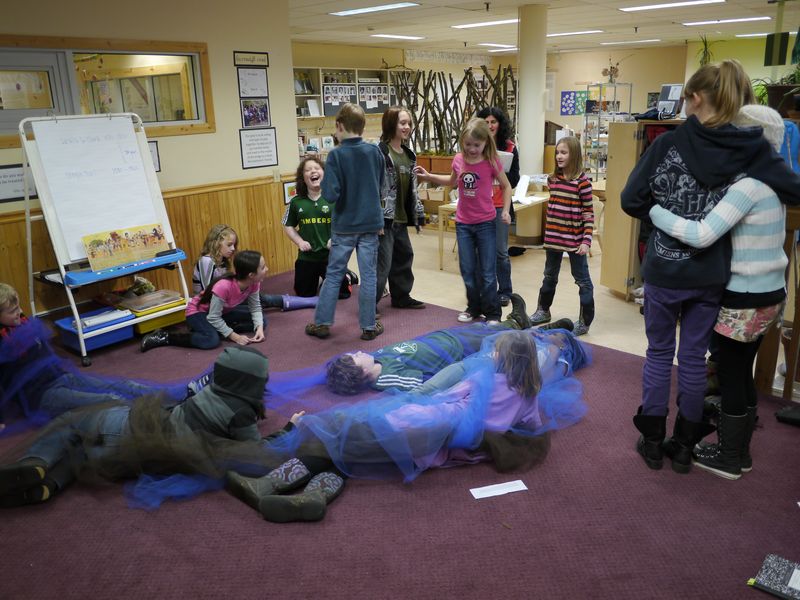The Power of Water – A Story from Oregon History
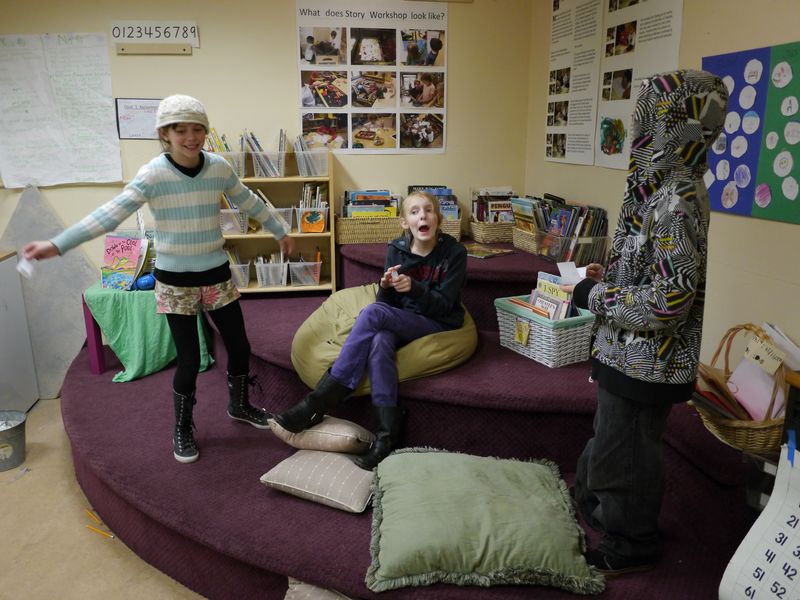
An intention we have for social studies work in Opal 4 this year is to dive into the study of Oregon History. With the story of the Lewis and Clark Expedition behind us, we have moved forward almost a half a century to a time when European Americans made their way overland to Oregon Country on the Oregon Trail.
We have also spent time this year getting to know a creek in the Arboretum. The time we have spent playing in and with the water has led us to observe and wonder about other water sources in and around school, and in and around where we live. We are starting to see the power water has — both creative and destructive power.
How do these two stories collide?
This is the big question that will guide our inquiry work in Oregon History:
How has water formed and influenced the story of Oregon and the stories of the people who live here?
We started by reenacting the crossing of the Snake River on the Oregon Trail in 1853.
We read the picture book, Apples to Oregon together. This book tells the story of the Lewellyn Family and how they came to Oregon on the Oregon Trail in 1847 along with their wagon full of apple seedlings. We paid very close attention to their experiences at river crossings.
Next, I announced that I was leading a Wagon Train on the Oregon Trail and we were about to cross the Snake River. Everyone in the room would play a part in this drama and have to make some decisions about how they would cross.
First, the children had to take on roles.
One group became a family in a covered wagon:
Dad: You just lost your farm in Missouri to a flood. You see the chance to go to the Oregon Territory and get free, fertile farm land as your only chance to start over and rebuild what you have lost. You know the trip to Oregon is risky and that you could lose a lot along the way, but you see this trip as your only choice.
Mom: You loved the farm and taking care of your family there. You also see the chance to go to the Oregon Territory and get free, fertile farm land as your only chance to start over and rebuild what you have lost. You know the trip to Oregon is risky and that you could lose a lot along the way, but you support your husband's decision to come and you see this trip as your only choice.
Daughter: You saw your home and your farm get washed away by a flood, and you know that you have no choice, you have to be on this hard, scary trip with your family on the Oregon Trail to get to have new farm land and start over. You are sad that you had to leave your best friends in Missouri and that you will have to start all over in this new place.
And a second group became another family in a covered wagon
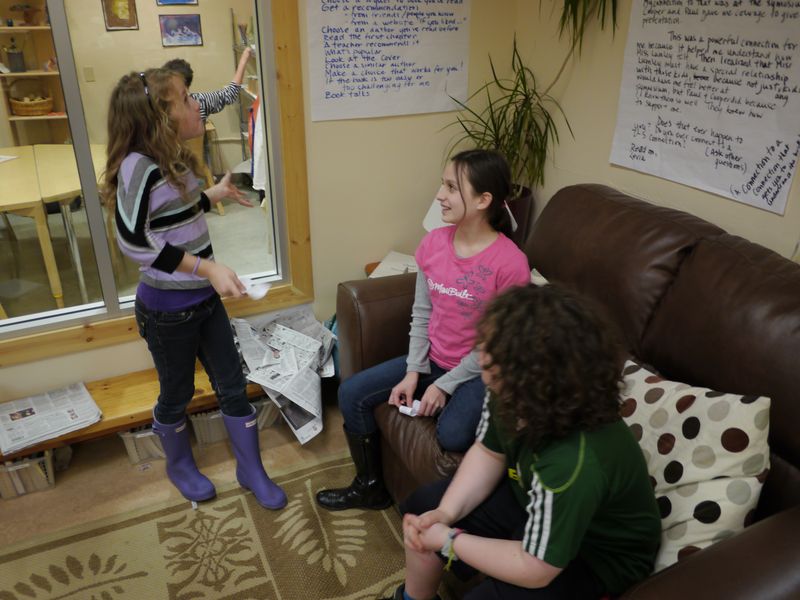
Dad: You ran a successful merchantile (general store) in Missouri before deciding to move your family overland to Oregon. You are moving with some inventory to open a new store in the Oregon Territory, and you have a pocket full of cash to get you started. You are sure you can be even more successful there, especially if you are the only store in the new town.
Mom: You had a comfortable life in Missouri. Your husband ran a successful merchantile (general store) and you were used to having the finest things. You are not thrilled about taking this big risk and moving your family to Oregon, even if your husband thinks that he can be even more successful there. You have heard that the trip on the Oregon Trail is dangerous and you are not the adventurous type.
Daughter: You were worried about the journey on the Oregon Trail, but now that you have been traveling for a while, you are feeling more confident. You might even take a turn driving the wagon and the team of oxen.
Two girls became Native American Guides at the Crossing
Nez Perce Indians, on horseback: You know this section of the river so well, you can lead wagons in crossing and you can herd livestock across safely on your horse. You know how to avoid the deeper, more narrow sections of your channel which are running extremely fast. You know that anything or anyone that steps foot in these sections will not be able to maintain their footing. Chances are, if they hit these sections at all, they will be swept up in the current and be unable to stand again. You will ask for $6 per wagon for this service.
And two students became aspiring pioneers who started a ferry service
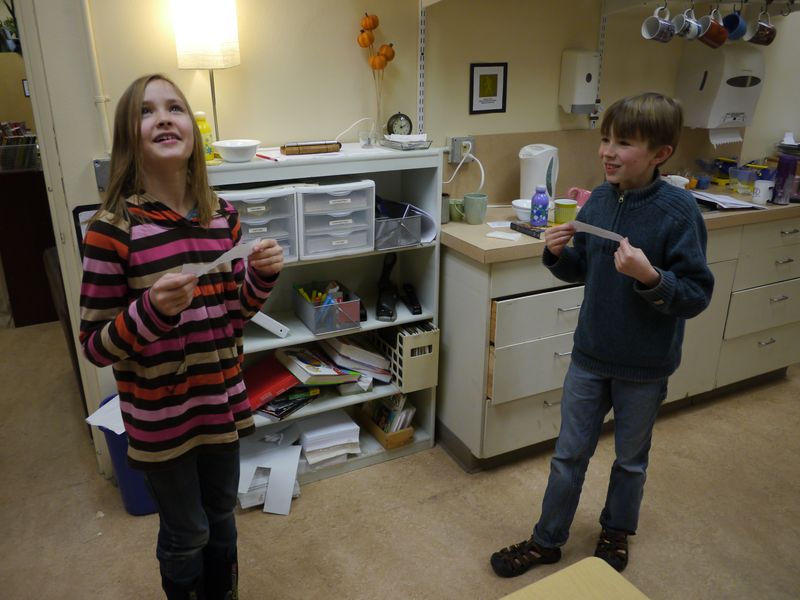
Ferry Operators: You and your partner have build a ferry to carry people, livestock and wagons across the river. You know that your ferry makes the river crossing much safer than going on your own, especially today with the river flowing as high and fast as it is. You will ask for $10 per wagon for this service. You know that the Indians at the river will cross you for less money, but you are sure you can convince the travelers to choose your service.
The final group of students became the river
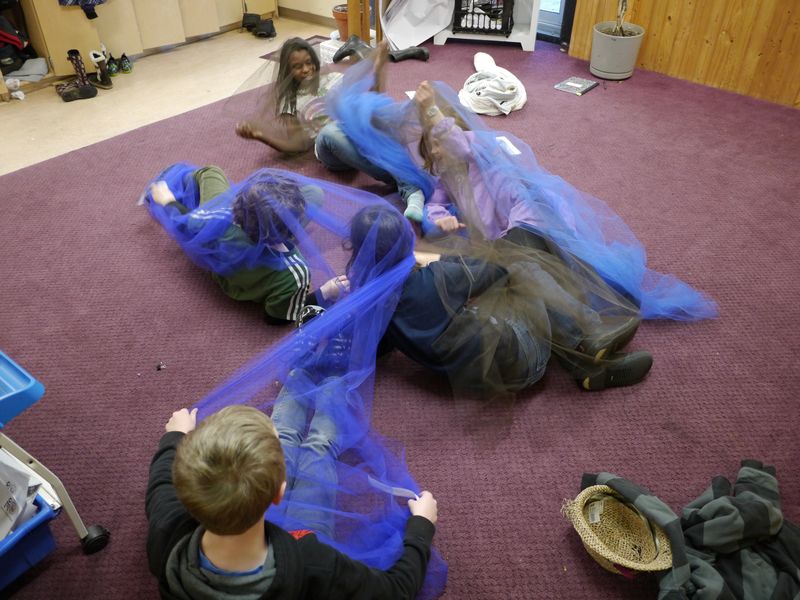
River: You are running high and fast today. Snow melt and heavy rains are adding more water to you and are making the water more turbulent and rough.
Tributary: You drain directly into the river here. You are running cold, high, fast and clear today. Your source is mostly snow melt from the mountain.
Deep Channel in the river: You are a deeper, more narrow section of the river and you are running extremely fast. Anything or anyone that steps foot in you will not be able to maintain their footing. Chances are, if they step in you, they will be swept up in the current and be unable to stand again. Floating on you will be challenging today too. Loads will need to be low and balanced to make sure they don't capsize, turn over, or sink.
With the Snake River in place, the families were ready decide how they would cross.
First, the Nez Perce Guides pitched their services
Then the Ferry Operators pitched theirs.
Which shall we choose?
This family chose to cross with the Nez Perce Guides. They seemed to know the river best, and Elizabeth (this wagon train Mom) was very concerned about keeping her family safe.
And they all made it across safely.
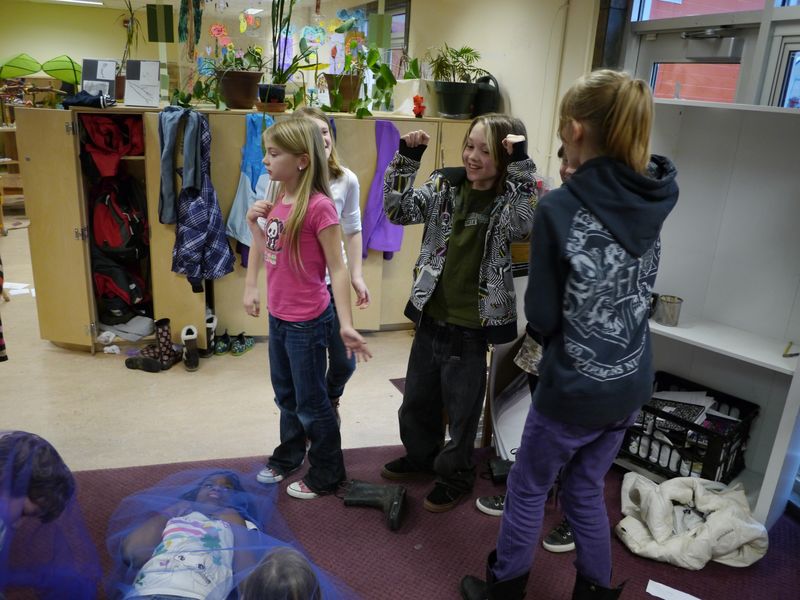
The second family did not fare as well. They decided to split up and let the father take the wheels off the wagon and float across on his own while the mother and daughter would cross with the Nez Perce guides. The father and the wagon were swept away by the current.
The next morning, the students were invited to write diary entries about their experiences at the Snake River Crossing.
__________________________
Oregon Diary, 1/20/1853
Dear Diary,
Today I crossed the Snake River. There was so much horse manure in that river it made my brain fuzzy! Bones at the bottom of the water sent chills up my spine and butterflies flying into my stomach! All I knew is that I was never going back to Missouri to see Anny and Lilly. (No, Skype has not been invented yet.) Never gonna hear their voices. But getting onto that Indian’s horse hearing that horse hoof actually step into the river was the scariest part of all. Once I got across safely with my parents, relief washed over me like the current of the river. I had done it. I watched my aunt and cousin cross safely after my uncle had drowned. It was a sad sight, but at least he wouldn’t steal anymore. Don’t tell Mother I said this, but it’s better now he’s gone.
The adventures are yet to continue since we are barely in Oregon Country.
Love,
Penelope Pepp (NF)
________________________
1/21/1853
Dear Diary,
Mother is teaching me how to read. It is very confusing. I don’t know how to pronounce “exquisitely.” It is commonly used. I’m scared. Not as scared as crossing the Snake River. That is as scary as nothing. So scary.
Love,
Penelope (NF)
___________________
1/20/1853
Dear Diary,
I was so scared when my baby went across that river. My baby’s name is Penelope Pepp. After that my husband came along the river. Before we had to decide who was going to go across with us. There were three choices which were: the ferry (it sunk), the Indians (we hired them) or we could cross by ourselves (we didn’t have the guts). So, as you know, we chose the Indians. My sister, my brother and my niece are traveling with us. My sister had a terrible husband, so naturally they had a fight over it. They decided to split up coming across the river. So my sister and my niece went with the Indians and my no good, pig stealing, lying, cheating, good for nothing brother in law went into the river by himself. He died.
Elizabeth Pepp (EY)
____________________
1/23/1853
If you are reading this, I am dead. Well, mayhap not, but definitely older than I was when I wrote this. Anyhow, don’t mind my horrible writing skills because I have lived on a farm my whole life. So transporting Penelope’s dolls and junk across a river was child’s play compared to wrestling hogs to the ground.
Phillip Pepp
(a note to the future, by MC)


